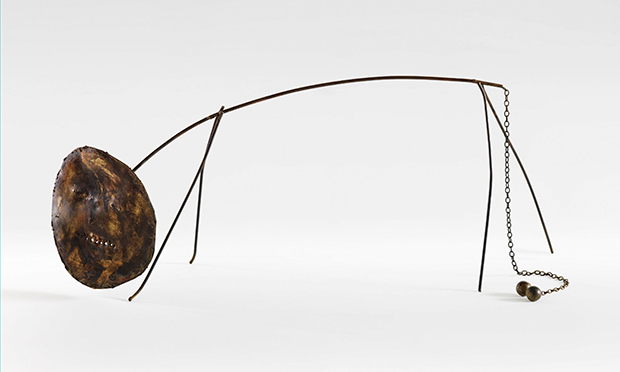Fausto Melotti comes to Highbury

Fausto Melotti (1901-1986) believed in geometry.
The Italian artist was obsessed with shape, averring that “art is an angelic, geometric state of mind. It addresses itself to the intellect, not the senses”.

Yet few would disagree that Melotti’s art does have a strong sensual component, mixing visually compelling geometric forms with the sublime satisfaction produced by clean lines.
Far more renowned in his native Italy than in the UK, Melotti’s oeuvre spanned the 20th century.
The selection presented in this retrospective at the Estorick Collection includes work from 1925 to 1984, mainly sculpture, but also a number of paper-based images.
Spare and precise, Melotti’s early work has shadows of possible influences – sketches that evoke the figural motifs of de Chirico and Picasso, a sculpture – the Seven Sages (I Sette Savi) – with hints of Brancusi.
His later work, though making some oblique nods to the material conceits of l’arte povera, has a unity and style all its own.

Strong vertical lines are a common refrain. Mainly straight, though sometimes curved or angled, vertical strokes define the paintings and sketches, and straight rods are recurrent features of much of the later sculptural work.
Most of Melotti’s sculpture is abstract: elegant studies in shape and form wrought in wire, rods and sheets of various metals.
The touchingly humorous Lion Friend (L’amico leone) fashioned of brass wire, sheet and chain, makes a notable exception.
Fausto Melotti may have abjured the senses, but this intriguing collection belies his claim.
For existing fans of the artist and novices alike, the exhibition is well worth a visit.
Fausto Melotti: Counterpoint
Till 7 April
The Estorick Collection, 39a Canonbury Square, N1 2AN
020 7704 9522
